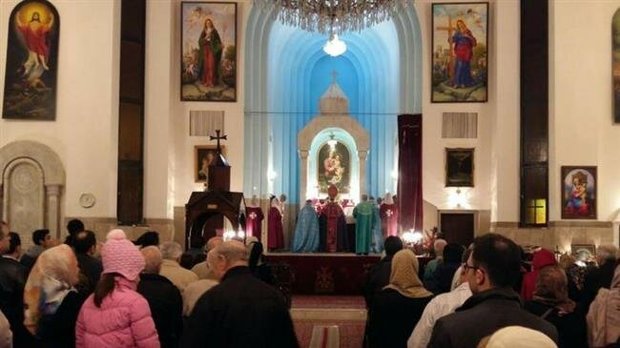- News code: 1270945
- Source: en.imam-khomeini.ir
Christianity in Iran dates back to the early years of the faith, predating Islam. Currently, there are at least 600 churches and over 300,000 Christians in Iran.
Under the Constitution, all divine religions in Iran have their own representatives at the Parliament and enjoy equal rights with fellow lawmakers. Speaking to Press TV, their representative said the Catholic Armenians are followers of one of the divine religions in Iran who can perform religious rituals and carry out social and cultural activities in the country with full freedom.
The Iranian lawmaker also said that the US government is pursuing an opportunistic approach to minorities to meet its own interests. He said the US attitude toward colored people is a clear example in this regard and that Washington should be concerned about its own poor human rights record at home and abroad.
Under the Constitution, the official religion of Iran is Shia Islam. However, the Islamic Republic recognizes Zoroastrian, Jewish, and Christian religious minorities. The Constitution stipulates that investigation into individual beliefs is forbidden, and that no one may be harmed or taken to task simply for holding a certain belief.
US claims on religious minorities' rights in Iran biased: Bishop
Also in September, head of the Armenian Diocese of Iran Bishop Sarkis Davidian says claims made by some US officials about the rights of religious minorities in the Islamic Republic and lack of freedom to perform their religious rituals are "biased and baseless."
In a statement on Monday, Davidian added that the Catholic Armenians are followers of one of the divine religions in Iran who can perform religious rituals and carry out social and cultural activities in the country with full freedom.
It added that the US is pursuing an "opportunistic" approach to minorities to meet its own interests.
Apparently, Washington supports religious minorities but in fact it is victimizing them for its hegemonic policies, Davidian said, adding that the US attitude to the colored people is a clear example in this regard.
Last month, Iran’s Assyro-Chaldean churches censured US officials’ “interventionist” claims about the situation of religious minorities in the Islamic Republic, calling on Washington to be concerned about its own poor human rights record at home and abroad instead of shedding “crocodile tears” for others.
In a statement released on August 14, the churches rejected US accusations of rights violations against religious minorities in Iran, saying all divine religions in the country have their own representatives at the Iranian Parliament and enjoy equal rights with fellow lawmakers.
The official religion of Iran is Shia Islam under the Constitution. The Islamic Republic recognizes Zoroastrian, Jewish, and Christian religious minorities.
The Constitution stipulates that “investigation into individual beliefs is forbidden,” and that “no one may be harmed or taken to task simply for holding a certain belief.”
The US, however, has long been seeking to present itself as a defender of the rights of Iranian religious minorities, accusing the Islamic establishment of intolerance towards them. Such accusations have seen a sharp rise since the inauguration of US President Donald Trump.

